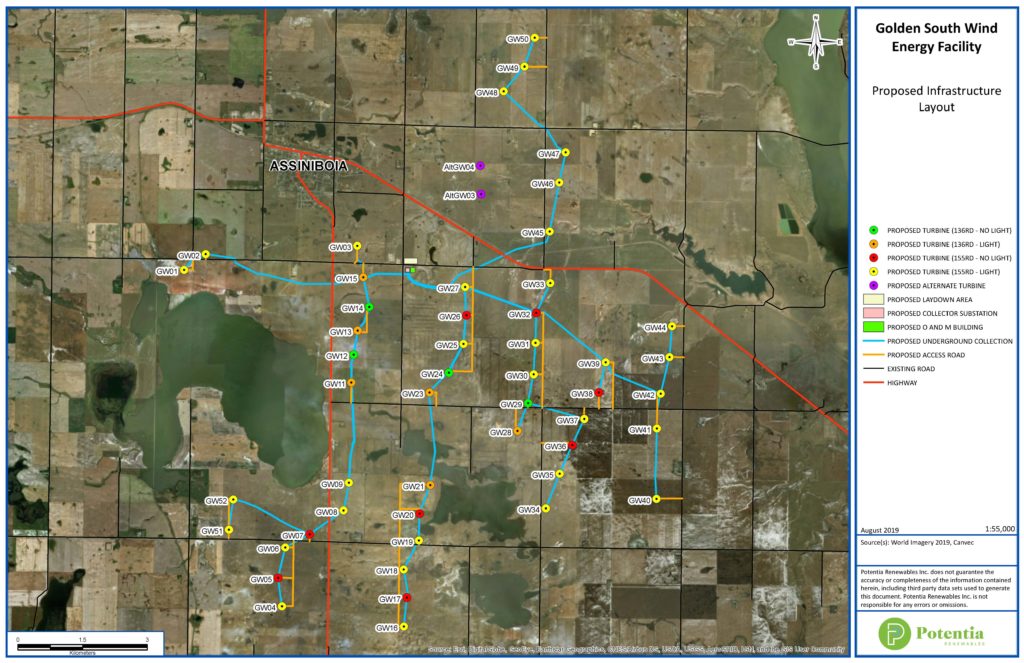About the Golden South Wind Project
The Golden South Wind Project (the Project) is located immediately south and east of the Town of Assiniboia, Saskatchewan, approximately 175 kilometres southwest of Regina in the Rural Municipalities of Lake of the Rivers and Stonehenge.
The Project was started in 2009 and is located within approximately 34,000 acres of leased agricultural land. The Project consists of 50 turbines, an underground electrical collection system, a transformer substation, meteorological towers, operations and maintenance building, new access roads and some upgraded existing roads. The Project has a generation capacity of 200 megawatt (MW) and reached Commercial Operations on March 31, 2022.
A Community Liaison Committee (CLC) was established for the Project in September 2019. The purpose of the CLC was to provide a venue for open dialogue with the local community during construction and the start of operations. The sixth and final CLC meeting took place on Tuesday, May 3, 2022, from 6:30pm to 8pm. Please visit the CLC page for the meeting agenda, presentation and meeting minutes.
Project Updates
The Project reached Commercial Operations on March 31, 2022. The Operations and Business Management teams are now managing the facility
Borea Construction completed reclamation activities in 2021 per the commitments made in the Technical Proposal that was prepared for the Project and approved by the Saskatchewan Ministry of Environment (SKMOE) and the Site Rehabilitation Plan agreed to by the landowners. PESCA Environment will routinely monitor and assess the reclamation progress for 2022 and 2023.
A Post Construction Bird and Bat Mortality Monitoring (PCMM) program started in April 2022. The PCMM program has been developed in consultation with the SKMOE to monitor and assess the number of bird and bat mortalities. PRI has hired Natural Resource Solutions Inc. (NRSI), an environmental consulting company, to carry out the program. The program will last a minimum of two years, and annual survey results will be submitted to the SKMOE. If mortality exceeds specific thresholds, PRI will work with SKMOE on mitigation to reduce mortality. Additional information on the PCMM program will be provided on this website following the completion of the surveys and consultation with SKMOE.
If you have any questions about the Project, please visit our FAQ page or contact us.

